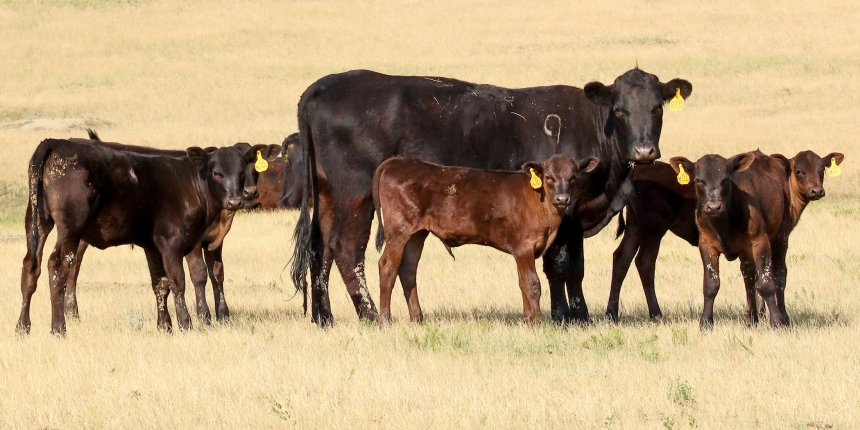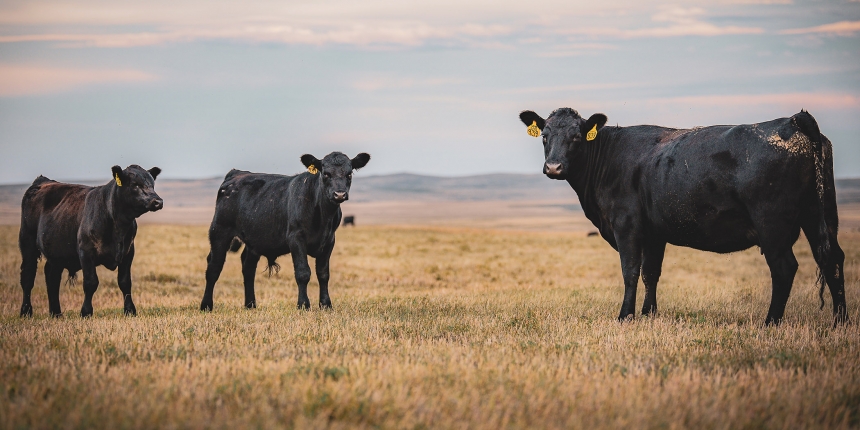Beef Cattle producers are feeling more optimistic. With an El Nino winter forecasted, cattle producers are anticipating a reprieve from multi-year drought conditions. For consecutive years the beef cattle herd has been in decline due to environmental conditions. A March 2023 USDA report shows that since 2022, there has been a 4% decrease in beef cows, 6% decrease in replacement heifers, and 5% decrease in heifers expected to calve this year. According to another published USDA article, the latest cattle inventory peaked in 2019 at 94.8 million and has since plummeted 6% to 89.3 million this year. The rapid decline in beef cattle inventory over the past four years was driven by drought conditions; however Northern states experienced above average rainfall during the 2023 spring and summer months and in the coming months NOAA predicts a wetter-than-average winter in the southeastern United States, allowing calf producers in recovering areas to consider opportunities to rebuild their herd.
When rebuilding, heifer selection carries significant economic importance. Phenotypic characteristics such as udder quality, temperament, and body conformation are initially considered in replacement heifer selection. Yet with fertility and longevity being highly heritable, it is critical to evaluate the stayability of heifer’s dam. The University of Florida recommends ranchers introduce 17% first calf heifers annually into the herd; however, when emerging from a sustained drought, the ranchers may consider increasing this percentage.
Investing in replacement heifers – purchased or ranch raised – will have long term implications on the operation’s profitability. With the multi-year decline of cow numbers, cattle are being traded at historically high prices causing additional pressure around the economic investment.
Journal of Applied Farm Economics Article Profitability of Developing Beef Heifers on Stockpiled Winter Forages calculates the breakeven cost of heifer development in years of calf production. Heifers on forage-based systems would breakeven after 3-4 years of calf production, while dry lot heifers would breakeven after 9-10 years in calf production. All management decisions should be considered to increase longevity and profitability in the young female’s production lifetime.
When breeding heifers, producers should be seeking bulls with high fertility and increased opportunity for a low-birth-weight calf to ensure a successful first calving season. For this very reason many producers select Wagyu bulls for increased profitability when developing heifers.
Wagyu bulls are known for their high libido and consistency in producing low birthweight calves, reducing the risk of dystocia and increasing the opportunity for profitability. Using Wagyu bulls provides many quantifiable benefits: increased opportunity for pregnancy, low birth weight calves, increased breed back, and a calf that yields a premium over market.
The crossbred calf produced from Wagyu bulls warrants a premium due to Wagyu cattle’s genetic ability for increased deposition of intramuscular fat (IMF). Unlike other beef breeds, the intramuscular fat is abundant and possesses a unique fatty acid composition. The IMF in Wagyu and Wagyu cross cattle is higher in oleic and linoleic acids, with a higher concentration of unsaturated fat providing an elevated eating experience.
The recognition of these unique breed attributes had contributed to the increased growth of Wagyu cattle in the United States. All domestic Wagyu cattle are DNA traceable back to the original imports from Japan during the 1990’s. Less than 200 black wagyu cattle were originally imported, and The American Wagyu Association currently estimates that over 40,000 head of Full Blood Wagyu and Wagyu cross feeder cattle. The growth of the breed steams from the commercial application of feeder cattle production as well as the increased demand for quality beef from the consumer.
For calf producers working with a branded beef company provides ranches the ability to forward contract each calf crop of F1 Wagyu cross calves. Mishima Reserve American Wagyu Beef – a branded beef company – provides a calf buy back program after supplying producers with high quality Wagyu bulls or semen. Mishima raises and sells hundreds of fullblood Wagyu bulls across the Western United States annually, offering quality genetics to their producers – focusing on low birthweight and carcass merit EPDs.
By buying back calves out of these Wagyu bulls, Mishima can monitor feed conversions in the yard and produce calves with elevated carcass quality. Mishima Reserve strives to improve feed efficiency and feedlot performance while producing a consistent quality beef product.
An initial hesitation of cow calf producers when committing to a Wagyu crossbreeding program is due to the belief that a low-birthweight F1 Wagyu calf will not wean enough pounds for the premium to warrant a change in their production system. Yet, many producers that have committed to the F1 production program report that their Wagyu cross calves wean on average 50 less pounds in comparison to their straight Angus animals, but still profit more dollars per head than calves produced out of their cows.
Montana producers who have been partnering with Mishima Reserve Wagyu Beef to produce F1 Wagyu Angus calves for the luxury beef brand were interviewed about their initial decision to breed their heifers to Wagyu. Producers interviewed reported the average birth weight is 65 pounds and attested to the additional attributes in participating in Mishima Reserve’s calf buyback program.
Mishima Reserve is a proven partner when considering breeding heifers and marketing into a premium market. Turk Stovall of Billings, MT, owner of Stovall Ranches and partner in Yellowstone Cattle Feeders stated “We really put a lot of effort into research and data and working with Mishima Reserve and their team has been awesome. We couldn’t find a better partner.” Producers like Turk Stovall have been using wagyu bulls on their heifers for years and marketing their calves to Mishima Reserve.
With beef demand sustaining amongst the end consumer, a tightened feeder cattle inventory warranting increased prices, and starting to see reprieve from the drought, there is opportunity for rebuild of the beef cattle inventory in the United States.
To capitalize on your calf crop from your first calf heifers – consider participating in a buyback opportunity with a branded beef company such as Mishima Reserve. Mishima Reserve bulls are housed in Montana and Texas but can be shipped nationwide. For more information on the program visit Mishimareserve.com or come by booth 2484 during NCBA’s Annual Convention in Orlando, Florida January 31 – February 2,2024.


